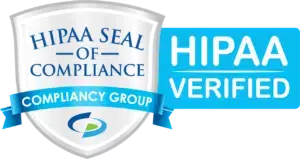Herniated Disc
Heal Your Herniated Disc For Good
A herniated or ruptured spinal disc can cause significant pain and lower your quality of life, but there is hope for a full recovery. A herniated disc occurs when one part of your spinal disc (the jellylike nucleus) ruptures through the fibrous outer layer, or annulus, and protrudes into your spinal canal. Because your spinal canal has limited space, a protruding disc can irritate or compress your spinal nerve roots— branches of your spinal cord—causing severe pain and other unusual sensations in your upper or lower extremities.
Condition Information
Disc herniations can occur in any part of your spine, though most herniated discs occur in the lumbar spine—the part of your spine that sits just above your tailbone. Most disc herniations cause pain or discomfort on only one side of your body.
Risk factors for a herniated disc include:
- Age (people between the ages of 35 to 45 are most commonly affected)
- Occupation (especially those involving repetitive lifting, pulling, pushing, and twisting)
- Smoking
You should seek emergency medical help if you experience one of the following:
- Pain, numbness, or weakness that keeps you from your usual activities
- Changes in your bowel or bladder function
- Progressive loss of sensation in the areas that would contact a saddle
Cause & Symptoms
Disc herniations are most commonly caused by wear and tear that results in disc degeneration. Most people don’t know the exact cause of their disc herniation, however. Possible causes of disc herniations include:
- Lifting heavy objects with improper form
- Twisting or turning while lifting
- Repetitive work or sports activities
- A traumatic event (such as a fall)
Common signs and symptoms of a herniated disc include:
- Pain in your arm and shoulder or buttocks, thigh, and leg below your knee
- Numbness or tingling in your extremities
- Muscle weakness in your arms or legs
Herniated Disc Treatment
Disc herniations can respond well to conservative care techniques like a chiropractor, though the pain and discomfort many people feel with this health problem can affect the success of these procedures. Guarding—the conscious or unconscious muscle tensing that occurs during treatment—can impair the effectiveness of hands-on techniques to reduce pain and reduce a herniation.
